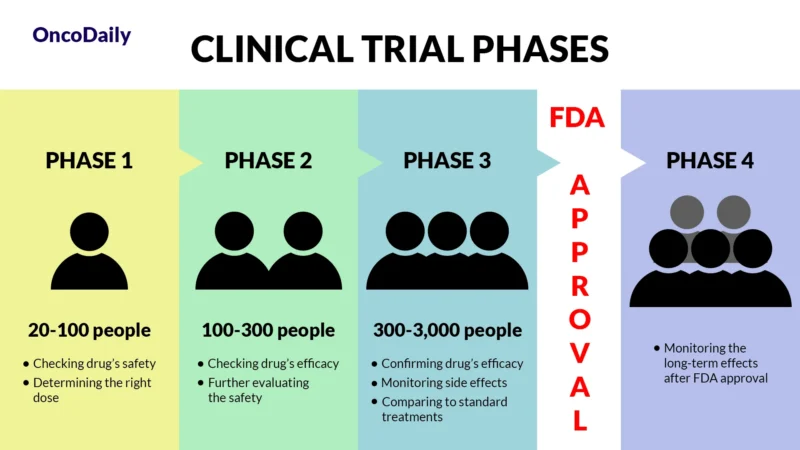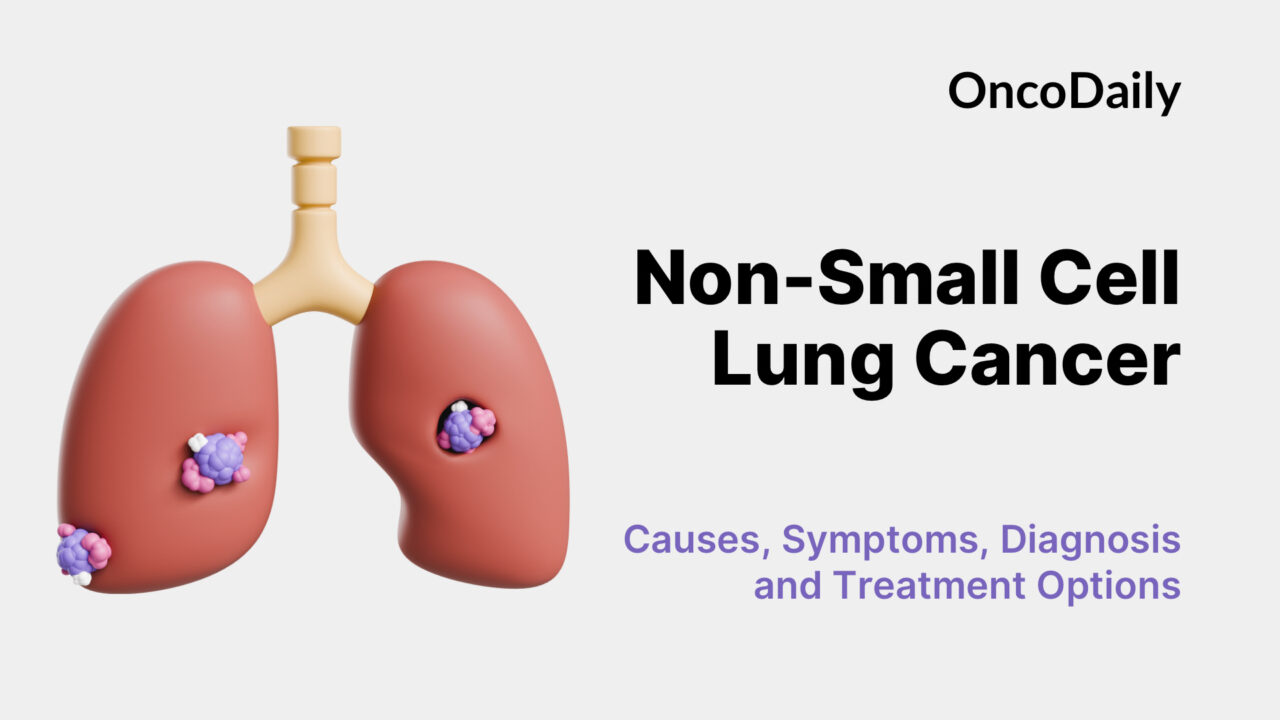Binimetinib, sold under the brand name Mektovi, is an FDA-approved oral medication used to treat certain types of cancer caused by specific genetic mutations. It’s part of a treatment approach known as “targeted therapy,” designed to block cancer cell growth at the molecular level.
This medication is currently approved for two advanced cancers: melanoma and non-small cell lung cancer (NSCLC)—but only in patients whose tumors have a mutation called BRAF V600. It’s always given together with another drug, encorafenib, for a more powerful and lasting effect.
Binimetinib was first developed by Array BioPharma, a U.S. company focused on targeted cancer treatments. After briefly being licensed to Novartis, the rights returned to Array. In 2019, Array was acquired by Pfizer, giving the company access to binimetinib and other precision cancer therapies.
What Is Binimetinib, and How Does It Work?
Binimetinib is a MEK inhibitor, which means it blocks proteins called MEK1 and MEK2 inside cancer cells. These proteins are part of a communication chain (the MAPK pathway) that tells cancer cells to grow and divide. In people with BRAF-mutant cancers, this chain is stuck in the “on” position—causing uncontrolled tumor growth.
Binimetinib cuts off that signal. Combined with encorafenib (which blocks the BRAF mutation itself), the two drugs stop the cancer’s internal growth system at two points, slowing the disease and sometimes shrinking tumors.
Fernandez, Manuel & Choi, Jacob & Sosman, Jeffrey. (2023). New Approaches to Targeted Therapy in Melanoma. Cancers. 15. 3224. 10.3390/cancers15123224.
What Cancers Does It Treat?
Binimetinib, when used together with another medicine called encorafenib, has been approved by the U.S. Food and Drug Administration (FDA) to treat two types of cancer—but only in people whose tumors have a specific genetic change called the BRAF V600 mutation.
Let’s break it down:
- In 2018, binimetinib was approved for people with melanoma, the most serious form of skin cancer. This approval is for those whose melanoma has spread to other parts of the body (metastatic) or cannot be removed by surgery (unresectable), and who also have a BRAF V600E or V600K mutation in their tumor.
- Then in 2023, the drug was also approved for people with metastatic non-small cell lung cancer (NSCLC)—the most common type of lung cancer—if their tumor carries the BRAF V600E mutation.
Before starting treatment, your doctor will run a genetic test on your tumor to see if this mutation is present. If the test comes back positive, binimetinib may be a good option for you, as it’s designed to specifically target cancer cells with this mutation.
In short, binimetinib is not used for all cancer types, but it can be very effective for melanoma and lung cancer that have the BRAF V600 mutation—a change that acts like a stuck accelerator pedal in cancer cells, making them grow too fast.

Read more about Melanoma in Adults: What patients should know? on OncoDaily.
What Is a Clinical Trial and Why Does It Matter?
A clinical trial is a research study designed to test new drugs and treatments in patients to determine their safety and effectiveness. Before Binimetinib was approved, it went through multiple phases of clinical trials to assess how well it worked, what side effects it caused, and whether it was better than existing treatments. Clinical trials are essential because they provide scientific evidence that a drug can help patients while ensuring it is safe for widespread use.

What Does FDA Approval Mean?
When a drug receives FDA approval, it means that after rigorous testing in clinical trials, it is both safe and effective for treating a specific condition. This approval makes the drug widely available for doctors to prescribe and helps patients access new, cutting-edge treatments sooner.
How Effective Is Binimetinib?
Before a cancer drug becomes widely available, it must be tested in clinical trials to make sure it works and is safe. Mektovi is used together with another drug called encorafenib (Braftovi) to treat a type of skin cancer called melanoma, especially when the cancer cells have a specific genetic mutation known as BRAF V600E or V600K. This combination helps slow down or stop the growth of cancer cells.
Binimetinib for Melanoma
Some melanoma patients have a gene change called NRAS mutation, which is harder to treat—especially if immunotherapy doesn’t work.
In a study called the NEMO trial, researchers compared binimetinib to an older chemotherapy drug (dacarbazine). The results showed that:
- Binimetinib helped control the cancer for longer,
- More patients saw their tumors shrink, and
- Overall, it worked better than the older drug.
⚠️ Note: Binimetinib is not FDA-approved for NRAS-mutant melanoma yet, but the results were encouraging and may guide future options.
For patients with BRAF-mutated melanoma, doctors tested a combination of binimetinib + encorafenib (Braftovi) against a standard treatment called vemurafenib in a study called COLUMBUS.
Here’s what they found:
- The combination kept the cancer under control for nearly twice as long (around 15 months vs. 7 months).
- It also had fewer serious side effects than older treatments.
✅ Based on these strong results, this combo was FDA-approved in 2018 for patients with advanced or metastatic melanoma with BRAF V600E or V600K mutations.
Binimetinib for Lung Cancer
Binimetinib is also helping patients with a form of lung cancer called non-small cell lung cancer (NSCLC) when it carries the BRAF V600E mutation.
In the PHAROS study, patients with advanced NSCLC received binimetinib + encorafenib. Here’s what happened:
- 75% of patients who had never received treatment saw their tumors shrink,
- Even those who had previous treatments did well,
- The most common side effects were mild, like nausea and fatigue.
✅ Thanks to this study, the FDA approved the combo in 2023 for BRAF V600E-mutant metastatic NSCLC.
These trials showed that binimetinib—especially when used with encorafenib—can help slow down cancer growth and shrink tumors in certain types of melanoma and lung cancer. If your cancer has a BRAF mutation, this treatment might be an option for you. Ask your doctor if you should be tested for this gene change.
Researchers are still learning how binimetinib can help people with different types of cancer. Here are three promising studies currently underway:
What Can You Expect During Treatment?
Limit your time in the sun, as binimetinib can make your skin more sensitive. Use sunscreen and wear protective clothing outdoors. You should also avoid grapefruit and grapefruit juice because they can interfere with how the drug works in your body. Lastly, talk to your doctor before starting or stopping any other medications or supplements, as some can interact with binimetinib and affect its safety or effectiveness.
What is the recommended dose of Binimetinib?
Binimetinib is usually taken by mouth at a dose of 45 mg twice a day—once in the morning and once in the evening—about 12 hours apart. It should be taken along with encorafenib, and treatment continues until the cancer worsens or side effects become too severe. If encorafenib is permanently stopped, binimetinib should also be discontinued. If side effects occur, your doctor may reduce the dose to 30 mg twice daily. If you still can’t tolerate it at the lower dose, treatment may be stopped altogether.
What if I miss a dose?
If you miss a dose and it’s less than six hours before the next one, skip the missed dose—do not take two doses at once. If you vomit after taking a dose, don’t retake it; just take your next scheduled dose as usual.
How to store Binimetinib?
Store binimetinib at room temperature, away from extreme heat or cold. During treatment, it’s important to avoid becoming pregnant, as the drug may harm an unborn baby. Use reliable birth control during treatment and for at least 30 days after the last dose. Breastfeeding is also not recommended while taking binimetinib and for at least three days afterward.

Read more about Non-Small Cell Lung Cancer: Causes, Symptoms, Diagnosis, Treatment Options, and Latest 2025 Advances in Targeted and Immunotherapy on OncoDaily.
What Are Binimetinib Side Effects?
Like all cancer medications, binimetinib can cause side effects—but many of them are manageable with the help of your care team. It’s important to let your doctor know about any symptoms you experience so they can be addressed early.
Common side effects include feeling tired, nausea, vomiting, diarrhea, muscle pain or cramps, skin rash or dryness, and blurred vision. These side effects may be uncomfortable but are often treatable and temporary.
There are also less common but more serious side effects that can occur. These include heart problems such as reduced heart function, eye problems like changes in vision, lung inflammation, serious muscle breakdown (a rare but serious condition), and liver issues. Your doctor will regularly check your heart, eyes, lungs, muscles, and liver function to catch any problems early.
Always tell your healthcare provider right away if you notice new or worsening symptoms during treatment with binimetinib. Staying in close contact with your care team helps keep treatment safe and effective.
To make sure binimetinib is working safely and effectively, your healthcare team will keep a close eye on your health throughout treatment.
This includes regular heart checks and eye exams, since the medicine can sometimes affect how your heart or eyes function. You’ll also have routine blood tests to watch for any changes in your liver or muscle health.
If any serious side effects show up, your doctor may adjust your dose or even pause treatment for a short time until things improve.
To help manage side effects, your team may offer anti-nausea medications, encourage plenty of rest, and remind you to stay well hydrated. These simple steps can make a big difference in how you feel during treatment.

Who Should Avoid This Drug?
Binimetinib is not suitable for everyone, and certain precautions should be followed during treatment to help ensure safety.
This medication should not be used during pregnancy, as it may cause harm to an unborn baby. Patients who are pregnant or planning to become pregnant are advised to avoid binimetinib. Reliable birth control should be used during treatment and for at least 30 days after the final dose. Breastfeeding is also not recommended while taking this medication and for three days after the last dose, as it is unknown whether the drug passes into breast milk.
While on binimetinib, the skin may become more sensitive to sunlight. To protect against sunburn or skin irritation, patients are encouraged to limit direct sun exposure, wear protective clothing, and apply broad-spectrum sunscreen when outdoors.
Grapefruit and grapefruit juice should be avoided during treatment, as they can interfere with the way binimetinib is absorbed and processed in the body, potentially affecting its effectiveness or increasing side effects.
It is also important for patients to inform their healthcare provider about all medications, supplements, and vitamins they are taking. Certain drugs may interact with binimetinib, which could impact how well it works or increase the risk of side effects. With proper guidance and monitoring from the care team, many of these issues can be managed to help keep treatment on track.
What’s the Long-Term Outlook?
For many patients, binimetinib offers durable responses. In a long-term melanoma study, over one in four patients were alive seven years after starting treatment with binimetinib and encorafenib. This shows promising durability for a disease that was once considered rapidly fatal.
While it may not be a cure, this treatment can control the disease for extended periods, improving quality of life and giving patients more time.
Real-World Impact
Beyond clinical trials, real-world use has shown that this drug combination is effective and manageable for many patients, with outcomes similar to those seen in studies. Continued research is helping to refine how and when it’s best used.
Looking Ahead
Researchers are continuing to explore new ways to use binimetinib to help even more people with cancer.
They’re studying how this medicine might work in other types of cancer, not just melanoma or lung cancer. They’re also testing whether combining binimetinib with immunotherapy or other targeted treatments could make it even more effective.
Some of the most exciting research is focused on rare genetic mutations and cancers that have spread to the brain—areas where treatment options are often limited.
This ongoing work brings new hope. With each study, we get closer to finding better, more personalized treatments for people facing hard-to-treat cancers.
Ongoing trials with Binimetinib
🔹 ENCEFALO Trial
For people with BRAF-mutant melanoma that has spread to the brain.
Patients first get binimetinib + encorafenib, followed by immunotherapy (cemiplimab + fianlimab).
The goal is to see if this combo can better control brain tumors for at least 6 months, especially in patients with symptoms.
🔹 CEBBRA Trial
Patients with a specific type of colorectal cancer (BRAF V600E-mutated, MSS) may be candidates for surgery.
This study tests a combination of binimetinib, encorafenib, and cetuximab before surgery, hoping to improve outcomes in this high-risk group.
🔹 PERFUME Trial
For rare cancers with BRAF fusions, like some low-grade brain tumors or pancreatic cancer.
Patients take binimetinib pills to see if they can safely shrink or slow down these hard-to-treat cancers.
If you’re a healthcare provider, access the professional version here.



